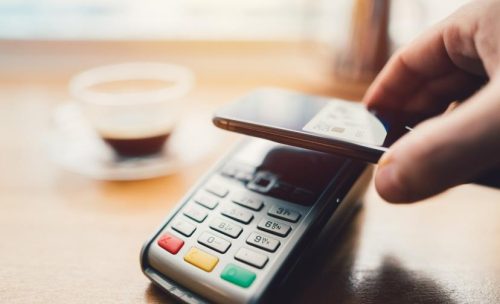Table of Contents
In plain English, a digital wallet – also known as an e-wallet – is a system that saves users’ payment information and passwords. Through such technology, it is much simpler to make purchases, whether these are made online or in the real world. When a mobile payment system is integrated with a digital wallet, purchases can be made with a smartphone. Besides financial information, a digital wallet can also keep track of coupons and loyalty card information.
Which Are The Most Popular Digital Wallets In The UK?
Apple Pay
The actual card numbers are not saved on your iPhone, iPad, or Apple Watch when you use them to make purchases in shops, through apps, or online. The Secure Element on your device is used to assign, encrypt, and securely store a one-of-a-kind Device Account Number instead.

Apple Pay is accepted in numerous big-name stores & restaurants. Even Transport for London accepts Apple Pay on the tube and on London buses.
PayPal
PayPal is incredibly popular with consumers because it’s a platform that’s convenient, fast and secure. The app lets you pay in shops, online shopping and even while travelling. In the UK, you may use PayPal at a wide range of online stores and establishments, including whether you shop, make travel arrangements, eat out, or even try your luck at the best online slots.
In fact, the platform offers sellers access to Seller Protection and buyers peace of mind with Buyer Protection – both backed by the world’s largest online payment solution with more than 153 million active registered accounts and 7 million businesses around the world offering PayPal.
 The use of digital wallets has grown in popularity in recent years. Currently, there are various benefits and drawbacks of digital wallets that businesses need to consider when determining whether it is appropriate for their customers. Without further ado, here are some pros and cons of digital wallet payment methods for businesses.
The use of digital wallets has grown in popularity in recent years. Currently, there are various benefits and drawbacks of digital wallets that businesses need to consider when determining whether it is appropriate for their customers. Without further ado, here are some pros and cons of digital wallet payment methods for businesses.
Pros and Cons of Digital Wallet Payment Methods for Businesses
Pros
Digital Wallets Are Contactless
 Many eWallets give value and peace of mind in stores in addition to being a practical form of online payment. Customers can swiftly check out using digital wallets without touching payment terminals or having to handle cash.
Many eWallets give value and peace of mind in stores in addition to being a practical form of online payment. Customers can swiftly check out using digital wallets without touching payment terminals or having to handle cash.
For Global Merchants, Offering An eWallet Payment Method Is Critical
According to a recent study, 54% of consumers are concerned about handling paper money and coins as a result of COVID and 60% plan on using digital and contactless payments instead of cash and coins in the future. Businesses that were still accepting payments at their store reported a 27% rise in contactless payments made with smartphones.
Lower Risk of Fraud For Merchants

Customers already trust eWallets, which is another important advantage, particularly for companies with strong brand awareness. As a result, businesses should embrace the trend. Customers’ devices, which can be protected by biometrics like fingerprints and facial recognition, are linked to their eWallet accounts. As a result, customers are more likely to trust businesses, and there is less chance of fraud.
Cons
Customers Use It, But Not All Businesses Have It Yet
If you didn’t know by now, eWallet usage isn’t universal, which is a disadvantage to small businesses that don’t have eWallet machinery at their POS. Customers are less likely to buy from merchants who don’t have a digital wallet contactless payment.
The Charges
 There are some apps that might charge customers or merchants for doing a transaction. Therefore, merchants should provide offers that are cash-backs that can only be transferred to the bank after paying a fee.
There are some apps that might charge customers or merchants for doing a transaction. Therefore, merchants should provide offers that are cash-backs that can only be transferred to the bank after paying a fee.
Merchants May Need to Manage Multiple Payment Integrations
Merchants must integrate with multiple different eWallets to accept mobile and desktop payments. This can be time-consuming, costly and complex. To be more productive and economical, merchants should accept eWallets using an all-in-one solution.



